35th IEOM Global Engineering Education
Speaker Registration: https://www.xcdsystem.com/IEOM/attendee/index.cfm?ID=E2r62FZ
IEOM Society International addresses the issues of Global Engineering Education. There are various levels of readiness of engineering graduates from various parts of the world. One of the main themes is how to reduce the readiness gap of engineering graduates around the world. The special focus is given to Industrial Engineering and Manufacturing Engineering including Engineering Management. Are the engineering graduates ready to take on the challenges of the current global economy? With the great success of Global Engineering Education Series of last IEOM conferences, IEOM Sydney, Australia Conference will have a dedicated session for the 35th Global Engineering Education where distinguished speakers will discuss the readiness of engineering graduates for workforce around the world. Featured speakers will be from various part of the world to address engineering education challenges and opportunities.
Global Engineering Education Topics can be related on:
- Accreditation
- Learning Assessment
- Problem based learning
- Project based learning
- Active collaborative learning
- Student learning assessment
- Teaching and learning
- Pedagogy
- Curriculum improvement
- Innovation and entrepreneurship
- Global engineering education challenges
- Industrial engineering, manufacturing engineering, systems engineering, integrated engineering, reliability engineering, quality engineering and similar Education
Each speaker needs to submit a title of the talk, photo and a short bio as well as power point presentation. All will be included in the IEOM 2022 Sydney, Australia Conference proceedings. If you are interested to be distinguished feature speaker, please contact info@ieomsociety.org for details.
DISTINGUISHED SPEAKERS
All Times are Australia Eastern Standard Time
Global Engineering Education I
2:00 – 3:45 pm, Tuesday, December 20, 2022 – Room 2 (Onsite)
Session Chair: Dr. Ataur Rahman
2:00 pm – 2:20 pm (Tuesday, December 20)
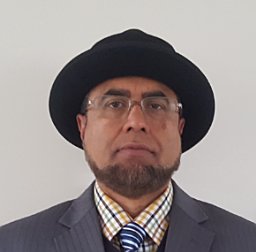
Professor Dr Ataur Rahman
Fellow, Engineers Australia
Member, American Society of Civil Engineers Professor of Water and Environmental Engineering
Core Member, Renewable Energy and Water Research Group (Sustainability and Resilience Theme)
School of Engineering, Design and Built Environment Western Sydney University, Australia
Prof. Dr. Ataur Rahman is currently serving as the Professor of Water and Environmental Engineering at Western Sydney University, Australia. Prof. Rahman is a world leader in streamflow modelling, water quality assessment, water-related sustainability, rainwater harvesting and climate change impact assessment. He was selected as one of top 2% scientists globally based on 2021 research data. He is one of the top 3 researchers globally on rainwater harvesting. His total publications on various aspects of water and environmental engineering are 486. He is one of the authors of Australian Rainfall and Runoff (ARR), the national guide. He received the G. N. Alexander Medal from Engineers Australia for his outstanding research paper on flood modelling. He developed ARR-RFFE Model, which is used widely across Australia. He is the founder Chair of Global Circle for Scientific, Technological and Management Research, which has organized five successful international conferences to promote scientific research. He served as Expert Peer Reviewer for numerous water projects. He has supervised 20 PhD students to successful completion. He won VC’s Excellence Award for PhD student supervision twice. He served as project leader for over ten funded research projects worth over $2 million. He is in the editorial board of three ISI listed journals. He served as the Co-Chair of Water Education Committee of Australian Water Association. He is a Fellow of The Institution of Engineers Australia. His total citations in Google Scholar are 6363 with an h-index of 38. He is serving in the editorial board of three ISI listed journals.
2:20 pm – 2:40 pm (Tuesday, December 20)
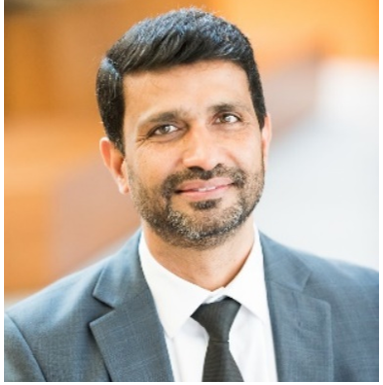 Dr Adnan Syed Muhammad
Dr Adnan Syed Muhammad
B.E., M.Eng.Sc., M.Eng., M.B.A., Ph.D.
Founder and Executive Director
Academic Leadership Institute Australia
Sydney, Australia
Topic: Academic research development and industry engagement
Abstract
There is a growing demand from university researchers to engage with the end-users of their research in order to achieve higher research impact. However, there are several factors that impede the external engagement activities for academics such as lack of time, motivation, proper training and support systems. In this talk, I will cover the importance of external engagement for research development and will share some practical strategies for developing academic research through industry engagement. This is based on my personal experience working with a large number of academic staff helping them in identifying a right industry partner and advising them on how to engage with the industry.
About the speaker
Adnan is the Founder and Executive Director of Academic Leadership Institute Australia, a ‘for-purpose organisation established to support researchers around the world with a primary focus to bridge the research excellence gap between the developing and the developed world. Adnan has extensive experience working in the industry and in the university sector. He is skilled in strategic planning, operations management, strategic partnerships, and business and research development. He has worked at multinational companies such as Siemens and ABB. He has also worked for six Australian Universities including three Go8 universities, the Australian National University, the University of Sydney, and the University of New South Wales. He has worked as Chief Operating Officer for two multi-university collaborative research centres including the ARC Centre of Excellence in Vision Science and the Centre for International Finance and Regulation. He has worked as Research and Business Development Manager at La Trobe University helping academic staff in their research development, external research grants and industry engagement activities.
Adnan has an MBA and a PhD. He did his PhD in the area of management of R&D alliances focussing the university-industry partnerships. He also holds two postgraduate degrees in biomedical engineering from NTU, Singapore and UNSW, Sydney where he worked on computer modelling and simulation projects for human renal system and selective stimulation of nerve fibers for patients with spinal cord injuries.
2:40 pm – 3:00 pm (Tuesday, December 20)
Cerasela TANASESCU
Director, Accelerator Programs
La Trobe Innovation and Entrepreneurship
La Trobe University
Melbourne, Victoria, Australia
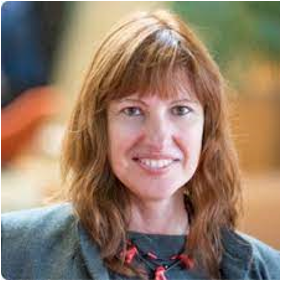
Topic: Engineers and Entrepreneurship – case studies, success stories and do and don’ts
Cerasela, the director of the La Trobe University Accelerator Program, has been one of our advisors from early on. She has years of experience working in universities’ incubators as a senior manager, as well as holding several senior management positions at ESSEC Business School in Paris
3:00 pm – 3:20 pm (Tuesday, December 20)
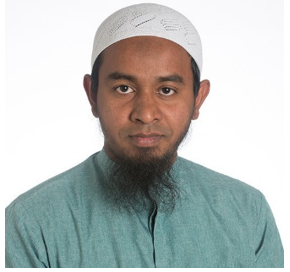 Dr. Sheikh Khaleduzzaman Shah, MIEAust, MAIE
Dr. Sheikh Khaleduzzaman Shah, MIEAust, MAIE
Researcher, Monash University
Energy Consultant, Global Buildings Performance Network (GBPN)
Melbourne, Victoria, Australia
Sheikh Khaleduzzaman Shah has successfully graduated with his PhD degree on April 03, 2020, from the Department of Infrastructure Engineering, The University of Melbourne, Australia. His main areas of research and expertise are energy engineering, building physics and HVAC design and assessment, building energy technologies, efficient building performance, sustainability design and assessment, solar thermal and PV, geothermal, energy storage system, zero energy and climate resilience planning and assessment. Sheikh building energy and energy efficiency experiences include theoretical knowledge and practical skills on the design of experiments, computer modelling, validation, simulation and optimisation of the different complex built environment energy systems. His engineering skills and competencies are assessed by Engineers Australia.
3:20 pm – 3:40 pm (Tuesday, December 20)
 Dr. Ali Jaafari
Dr. Ali Jaafari
Senior Consultant and Director
JCS
Sydney, New South Wales, Australia
EXPERTISE
- Strategic planning, functional planning and organisational performance management
- Complex project, program and systems management
- Strategic planning of projects and programs
- Project and program governance design and implementation
- Project delivery systems design and development
- Project and program diagnostics
- Competence-based human resource management
- Project and program risk management
- Graduate education, including course design, development and accreditation
- Quality management system in service organisations
Bio
Dr Jaafari is an author, academic, practitioner and consultant, recognised internationally, particularly in management of large complex projects and programs. He served as an academic and researcher at the University of Sydney in Australia for 24 years, and was appointed to a Professorial Chair in 2000, in recognition of his contributions to the research and education of students and practitioners, as well as his widespread global contribution to knowledge in this field. He has delivered courses and training workshops to thousands of professionals and executives globally, including major public and private sector organisations. Dr Jaafari has published widely in major international journals and conferences, books and monographs. He has been at the forefront of research and development of project, program and organisation management. Currently, he acts as a consultant in the field of project and program management, though he has held leadership positions in higher education for over 15 years. Dr Jaafari has an extensive professional track record in business and project management, and is known as an authority internationally.
Global Engineering Education II
4:00 – 5:45 pm, Tuesday, December 20, 2022 – Room 2 (Onsite)
Session Chair: Dr. Hasan H. Turan, Lecturer and Research Lead at Capability Systems Centre, University of New South Wales (UNSW Canberra), Australia
4:00 pm – 4:20 pm (Tuesday, December 20)
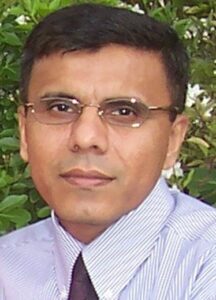 Professor Dr. Azharul Karim
Professor Dr. Azharul Karim
Faculty of Engineering, School of Mechanical, Medical & Process Engineering
Queensland University of Technology (QUT)
Brisbane, Australia
Topic: What motivates Engineering students for Deeper Learning?
Abstract
Student learning is significantly affected by assessment methods, but a concrete relationship has not been established in the context of multidisciplinary engineering education. Students make physiological investment and internalise learning (deep learning) if they see the high value in their learning; they persist despite challenges and take delight in accomplishing their work. As student deep learning is affected by the assessment system, it is important to explore the relationship between assessment systems and factors affecting deep learning. This study identifies the factors that affect the deep learning and examines the effect of different assessment systems on those factors. Strong influence of both summative and formative assessment on learning was established in this study. Engineering educators can facilitate deep learning by adopting both assessments types simultaneously to make the learning process be more effective. Empirically, it investigated the model and the hypotheses developed through a real data from an Australian university (QUT). It would help educators in designing their assessments for better learning outcomes.
About the speaker
Dr Azharul Karim is currently working as a Professor in the Mechanical Engineering Discipline, Science and Engineering Faculty, Queensland University of Technology, Australia. He received his PhD degree from Melbourne University in 2007. Through his scholarly, innovative, high quality research, he has established a national and international standing. Dr Karim has authored over 200+ peer-reviewed articles, including 125+ high quality journal papers, 13 peer-reviewed book chapters, and five books. His papers have attracted about 6400+ citations with h-index 40. His research has very high impact worldwide as demonstrated by his overall field weighted citation index (FWCI) of 2.09. He is editor/board member of six reputed journals including Drying Technology and Nature Scientific Reports. Dr Karim has supervised 20 PhD students to completion and is currently supervising 8 PhD and 3 MPhil students. He has been keynote/distinguished speaker in 22 international conferences and invited/keynote speaker in seminars 20 reputed universities worldwide including Oxford University and National University of Singapore. He has won multiple international awards for his outstanding contributions in multidisciplinary fields.
Prof. Karim is the inventor of energy and water efficient ultrasonic washing machine (patent WO02089652) and Ultrasonic dishwasher (patent WO0229148). Dr Karim’s global leadership in advanced drying methods is evident by the high impact of his papers, which is significantly higher than world averages. He is the recipient numerous national and international competitive grants amounting $3.32 million, including Advanced Queensland Fellowship (AQF), ARC Linage and ARC Discover as 1st CI. He is also a leader in innovatively applying ‘Lean Manufacturing’ concepts in hospital emergency departments to reduce long waiting times and optimize resources. His current research areas are multiscale and multiphase modelling of food drying, Nano fluid solar thermal storage, concentrating PV-thermal collector, Lean Healthcare Systems, and Engineering Education.
4:20 pm – 4:40 pm (Tuesday, December 20)
Adriano de Freitas
Visitor PhD Scholar
Monash University
Melbourne, Victoria, Australia
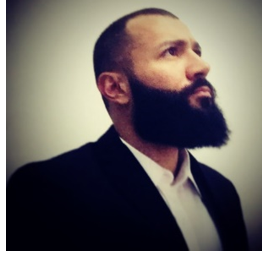
Adriano Gomes de Freitas is a visiting Ph.D. scholar at Laboratory for Simulation and Modelling of Particulate Systems (SIMPAS) at Monash University, Australia. He also was an Erasmus+ exchange Ph.D. at the Department of Mechanical and Energy Systems Engineering at University of Bradford, United Kingdom. He is a Ph.D. candidate in the Energy Program at Federal University of ABC, Brazil. M.Sc. in Engineering and Management of Innovation (2018) and a B.Sc. in Management Engineering (2016) from the same university.
4:40 pm – 5:00 pm (Tuesday, December 20)
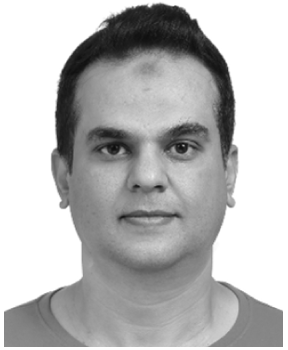 Yousaf Bin Zikria, Ph.D. SMIEEE
Yousaf Bin Zikria, Ph.D. SMIEEE
Assistant Professor of Information and Communication Engineering
Yeungnam University
Gyeongsan, South Korea
Yousaf Bin Zikria (Senior Member, IEEE) is currently working as an Assistant Professor with the Department of Information and Communication Engineering, Yeungnam University, South Korea. He authored more than 100 refereed articles, conference papers, book chapters, and patents. His journal article’s cumulative impact factor (IF) is more than 300. He published articles at the top venue, including IEEE Communications, Surveys, and Tutorials, IEEE Wireless Communications Magazine, IEEE Network, IEEE Transactions on Intelligent Transportation Systems, Future Generation Computer Systems (Elsevier), Sustainable Cities and Society (Elsevier), and Journal of Network and Computer Applications (Elsevier). He has managed numerous FT/SI in SCI/E indexed journals. His research interests include the IoT, 5G, machine learning, wireless communications and networks, WSNs, routing protocols, CRAHN, CRASN, transport protocols, VANETS, embedded systems, and network and information security. He also held the prestigious CISA, JNCIS-SEC, JNCIS-ER, JNCIAER, JNCIA-EX, and Advance Routing Switching and WAN Technologies certifications. He has been listed in the world’s top 2% of researchers published by Elsevier and Stanford University.
5:00 pm – 5:20 pm (Tuesday, December 20)
5:20 pm – 5:40 pm (Tuesday, December 20)
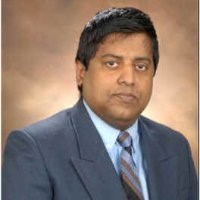 Dr. Ahad Ali
Dr. Ahad Ali
Associate Professor
Director of Bachelor of Science in Industrial Engineering
Director, Master of Science in Industrial Engineering
Director, Graduate Certificate in Lean Six Sigma
Director of Smart Manufacturing and Lean Systems Research Group
A. Leon Linton Department of Mechanical, Robotics and Industrial Engineering
Lawrence Technological University
Southfield, Michigan, USA
Sustainability inclusion in Product Design – A Problem Based Learning (PBL)
Dr. Ahad Ali is an Associate Professor, Director of Bachelor of Science in Industrial Engineering and Master of Science in Industrial Engineering in the A. Leon Linton Department of Mechanical Engineering at the Lawrence Technological University, Michigan, USA. Dr. Ali is the Director of Smart Manufacturing and Lean Systems Research Group. He earned B.S. in Mechanical Engineering from Khulna University of Engineering and Technology, Bangladesh, Master in Systems and Engineering Management from Nanyang Technological University, Singapore and Ph.D. in Industrial Engineering from University of Wisconsin-Milwaukee. Dr. Ali is the Executive Director of IEOM Society and Conference Chair of the International Conference on Industrial Engineering and operations Management. He supervised 11 doctorate students in Doctor of Engineering in Manufacturing Systems. Dr. Ali has published 60 journal and 150 conference papers. Dr Ali has done research projects with Chrysler, Ford, DTE Energy, Delphi Automotive System, GE Medical Systems, Harley-Davidson Motor Company, International Truck and Engine Corporation (ITEC), National/Panasonic Electronics, and Rockwell Automation. His research interests include quality, reliability, six sigma, manufacturing, simulation, optimization, scheduling, maintenance, e-manufacturing, lean, supply chain and logistics. He is a member of ASEE, IEEE, IEOM, INFORMS, and SME.
Past Programs of IEOM Global Engineering Education
- 2014 IEOM Bali Global Engineering Education Speakers
- 2015 IEOM Dubai Global Engineering Education Speakers
- 2015 IEOM Orlando Global Engineering Education Speakers
- 2016 IEOM Kuala Lumpur Global Engineering Education Speakers
- 2016 IEOM Detroit Global Engineering Education Speakers
- 2017 IEOM Rabat, Morocco
- 2017 IEOM Bristol, UK
- 2017 IEOM Bogota, Colombia
- 2018 IEOM Bandung, Indonesia
- 2018 IEOM Paris, France
- 2018 IEOM Washington DC, USA
- 2018 IEOM Pretoria/Johannesburg, South Africa
- 2019 IEOM Bangkok, Thailand
- 2019 IEOM EU Pilsen, Czech Republic
- 2019 Toronto, Canada
- 2019 Riyadh, Saudi Arabia
- 2020 Dubai, UAE
- 2020 Detroit, USA
- 2020 Harare, Zimbabwe
- 2021 Singapore
- 2021 Sao Paulo, Brazil
- 2021 Haiti
- 2021 Harbin, China
- 2021 Rome, Italy
- 2021 Bangalore, India
- 2021 Indonesia
- 2021 Monterrey, Mexico
- 2022 Istanbul
- 2022 Nigeria
- 2022 Paraguay
- 2022 Orlando
- 2022 Rome
- 2022 Warangal, India
- 2022 Johor Baru, Malaysia
- 2022 Sydney, Australia
(Click on the name of the speakers for pdf presentation file)
- Dr. Jinwoo Park
- Prof. Don Reimer
- Dr. Hongyi Sun
- Dr. Ilham Kissani
- Dr. Eugene Rex Jalao
- Dr. Gulnara Abitova
- Dr. James Chen
- Dr. FJ Kahlen
- Dr. Erik Sundin
- Dr. Abdul Hakim Halim
If you have any question about IEOM Conference and/or IEOM Society, please contact: info@ieomsociety.org.
